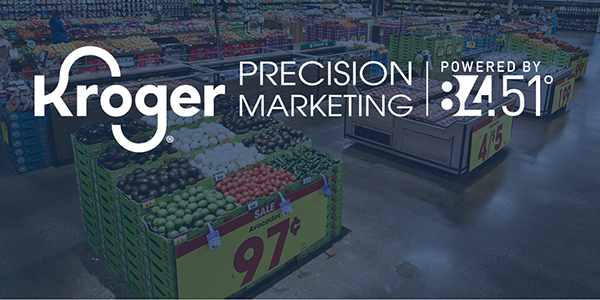 |
||||||||||
|
||||||||||
| Inconsistent State Privacy Regulations Trips up Ad Tech |
 |
| With growing state's consumer data privacy regulations and ad tech privacy updates, consumer privacy has become a trending ad tech topic as the industry struggles to meet complaince, as well as find alternatives for successful targeted advertising. In that regard, the IAB released the sixth edition of its State of Data report, raising a few red flags about "inconsistent state-level and poorly crafted privacy regulation." They predict these red flags will create more leg work for targeting consumers and measuring ad campaigns. While the IAB refused to name states specifically, these new state-level laws and the many revisions to ones that already exist are moving way quicker than most companies. They have found that companies cannot jump on the bandwagon of enacting and adopting measures and protocols. A few important recent state-level regulation changes to note:
|
| These state-level regulations are all over the place, presenting a big headache for the industry. Within the report, it is evident that "few seemed truly prepared for ongoing data-privacy legislation changes and the effect that these impending laws, and platform and browser changes, will have on their business." While leveraging emails for marketing purposes does fall in line with privacy constraints, the IAB foresees email and IP addresses facing restrictions soon. Let's not forget, Apple may have already blown up your email strategy. State privacy regulators are constantly changing the definition of 'sensitive data,' which alters what information can or cannot be shared with third parties for advertising. "It's not just for the legal and compliance team to work on this, but also marketers, ad ops people, [and] analysts need to understand what those changes are because it's going to impact their day-to-day responsibilities," Angelina Eng, VP of measurement and attribution at the IAB, told us. |
| Kroger Expands Private Programmatic Marketplace WIth Video and CTV Inventory |

Image sourced from Kroger Precision Marketing
|
| Kroger Precision Marketing is expanding its digital media capabilities by adding video and connected TV inventory to its private programmatic marketplace. KPM already turned heads when they created their retail media network, but this new addition showcases the company's acute sense of innovating and staying ahead of industry trends. “CTV is where people are consuming more TV content. Now is the time to leverage the available technology and retail data sources to generate incremental growth for advertisers,” says Cara Pratt, Senior Vice President, Kroger Precision Marketing. The expansion recently went live with packaged good brands and agencies. While the private marketplace launched last year, the video and CTV extension simply adds more capabilities to it. With the data configured in the marketplace, publishers and advertisers have access to CTV sales data from Kroger’s retailer loyalty program which consists of around 60 million households. To reach the target audience, advertisers will use inventory from premium suppliers such as Magnite, OpenX, PubMatic, and Xandr. This is a big deal. Kroger is giving CTV access to first-party data of all the households in their loyalty program. Brian Spencer, Director of Product Strategy & Innovation, Kroger Precision Marketing at 84.51, asserts that when the marketplace first launched it allowed “brands to use their first-party sales data to identify most relevant households and reach those households across the open web, using their own DSP of choice.” |
| This new addition comes on the heels of growing interest in video and CTV advertising. Reports by industry experts show that by 2025 CTV ad spend will reach $34.49 billion which is more than double 2021’s CTV ad spend. In fact, a study by Pathmatics shows how much the Consumer Packaged Goods (CPG) industry’s ad spend has migrated to OTT and CTV. CPG had the largest OTT spending segment last quarter according to Pathmatics. Kelly Metz, managing director-advance TV at Omnicom Media Group, has already lauded the benefits of the marketplace. “The scale and quality of Kroger’s first-party data have enabled us to optimize CTV delivery for our advertisers against actual store sales,” said Metz. “We are effectively driving in-store sales via television in a tangible way.” The plan for Kroger to expand its CTV capabilities has been in the works for a while and the execution seems to have come at the perfect time. This is not Kroger’s first romp in the CTV space, as a previous partnership with Roku opened the retailer’s shopper data to Kroger PMPs. But now the retailer is opening its own pipes to attract a wider array of high-quality inventory. “Bringing retail sales data into the programmatic landscape creates new optimization levers for brands. It builds more trust in the entire ad tech ecosystem when advertisers know they are using a retailer’s actual sales data to both build audiences and measure impact,” explains KPM’s Pratt. |
| Around the Water Cooler |
 |
| Here's what else we're talking about... Google & Meta's Jedi Mind Tricks Put to Rest — A federal judge allowed crucial elements of an antitrust case against Google to proceed, including allegations that Google illegally monopolized the ad-tech market. However, Judge P. Kevin Castel dismissed claims of collusion between Google and Facebook in the “Jedi Blue” program. (TheVerge) Netflix Is Hopeful About Ad-Supported Tier, But Some Analysts Aren't Buying It — Netflix estimates that its ad-supported tier will reach about 40 million viewers globally by the third quarter of 2023. Some skeptics feel that the new tier will most likely cause subscribers paying $15/month to dowgrade instead of help the streamer acquire new users to its $7-$9/month tier. But given the looming recession, anything is likely. (The Wall Street Journal & Insider) Walmart Steps Up Its Run on Aamazon's Heels — Walmart recently announced new ways for authorized third-party sellers to connect with customers across its marketplace through self-service options, giving companies alternatives to Amazon and eBay. (MediaPost) |
 |
|||||||
|
|||||||
 |
|||||||
 |
|||||||
|






